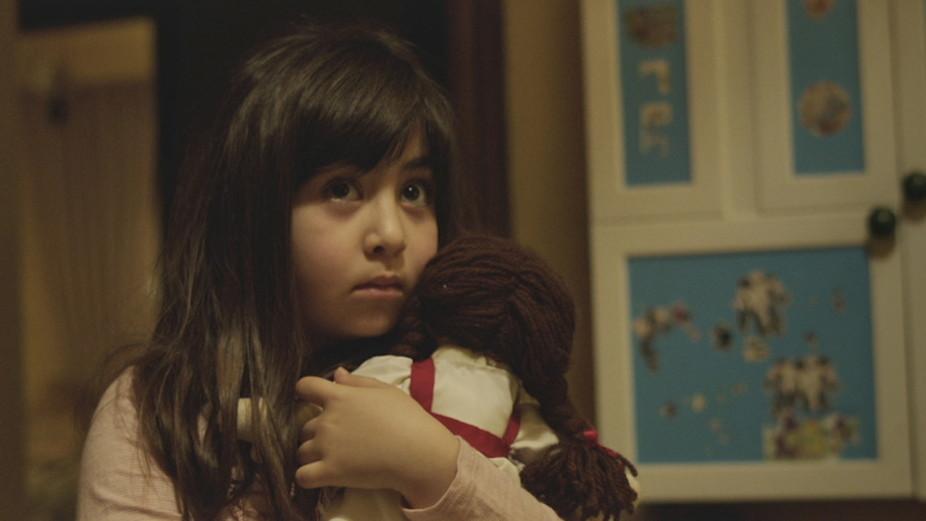Under the Shadow: tackling sexism with horror
Iranian director Babak Anvari’s first feature has taken Sundance by storm

Your support helps us to tell the story
From reproductive rights to climate change to Big Tech, The Independent is on the ground when the story is developing. Whether it's investigating the financials of Elon Musk's pro-Trump PAC or producing our latest documentary, 'The A Word', which shines a light on the American women fighting for reproductive rights, we know how important it is to parse out the facts from the messaging.
At such a critical moment in US history, we need reporters on the ground. Your donation allows us to keep sending journalists to speak to both sides of the story.
The Independent is trusted by Americans across the entire political spectrum. And unlike many other quality news outlets, we choose not to lock Americans out of our reporting and analysis with paywalls. We believe quality journalism should be available to everyone, paid for by those who can afford it.
Your support makes all the difference.Under the Shadow, a horror film set in 1988 Tehran and Iranian director Babak Anvari’s first feature, took Sundance by storm. In cinemas now, it is not only one of the best horror films this year but also the newest feminist reading of the genre.
The film takes place predominantly indoors in a Tehran flat. A young couple are trying to continue their normal lives with their six-year-old daughter, in the midst of the war between Iran and Iraq. Yet, the war is not the only horror they will have to deal with. We slowly discover that the family – or rather the mother and her daughter – are also under attack from mysterious forces.
Under the Shadow grounds you in reality even as it deals with the supernatural powers that soon haunt and suffocate the mother, Shideh (Narges Rashidi), and her daughter, Dorsa (played by the impressive young actress Avin Manshadi). The film does not hurry with the horror, taking time to develop its characters, slowly introducing them and the context in which they live, including the neighbours. This gives us glimpses of various lives and lifestyles in post-revolutionary Tehran.
We find out early on that Shideh wants to go back to her medical studies but much to her frustration is unable to due to her political activism before the revolution. In one lengthy scene, she desperately tries to convince the male authority figure to give her another chance, yet the man tells her she will never be readmitted. Back home, seeing how upset she is, her neighbour tells her “not to let them change her”. But how one remains unchanged, and how to keep “them” outside, is the question Anvari seems to be asking with the rest of the film.
Shideh’s desire to become a medical doctor, along with other details of her life, all work together to establish that she is constantly maintaining (like many) two lives, one in the outside world and one on the inside. And this distinction leads to increasing suffocation and invasion of her interior (life) as the outside slowly creeps in. Things start disappearing – as well as appearing – as a vicious djinn comes out to play, or rather mess, with her.
Although Anvari’s film is about Iran and entirely in Farsi, it was not shot there, in order to bypass censorship. The country has strict regulations in film-making, particularly regarding the representation of women. Some Iranian regulations make it very difficult for filmmakers to capture interior life realistically, and to construct fully developed characters. It would have been impossible, for instance, for Shideh to expose her hair and wear gym clothing at home while she exercises.
Under the Shadow appears to critique Iran and its preoccupation with women’s bodies, yet it does not stop at criticising the imposed veil. Shideh’s husband, for example, is an educated man (a doctor) and appears to be supportive of his wife’s decision to go back to medical school. Yet in one argument he reveals that he really thinks that Shideh is chasing a dream at the expense of her other (motherly) responsibilities.
I know of no woman who won’t relate to this “educated” and “nuanced” form of sexism and it is refreshing that Anvari’s film is prepared to acknowledge it, rather than resorting to easy criticism of Iran only. Anvari seems to be aware that the male privilege is part of what makes such oppression function smoothly, which is undoubtedly not specific to Iran. In a context where how much women cover and uncover is predominantly determined and justified by men (and sometimes policed at gun point) this is also a film about male privilege, about regulating women’s bodies, and the horrors that come with it.
Except for a few – easily forgivable – near cliché moments, Under the Shadow will not disappoint horror fans. But given its wider and all-too-of-the-moment concerns, it deserves your attention whoever you are.
This article was first published in The Conversation (theconversation.com). Ozlem Koksal is Visiting Lecturer in Film and Television, University of Westminster
Join our commenting forum
Join thought-provoking conversations, follow other Independent readers and see their replies
Comments